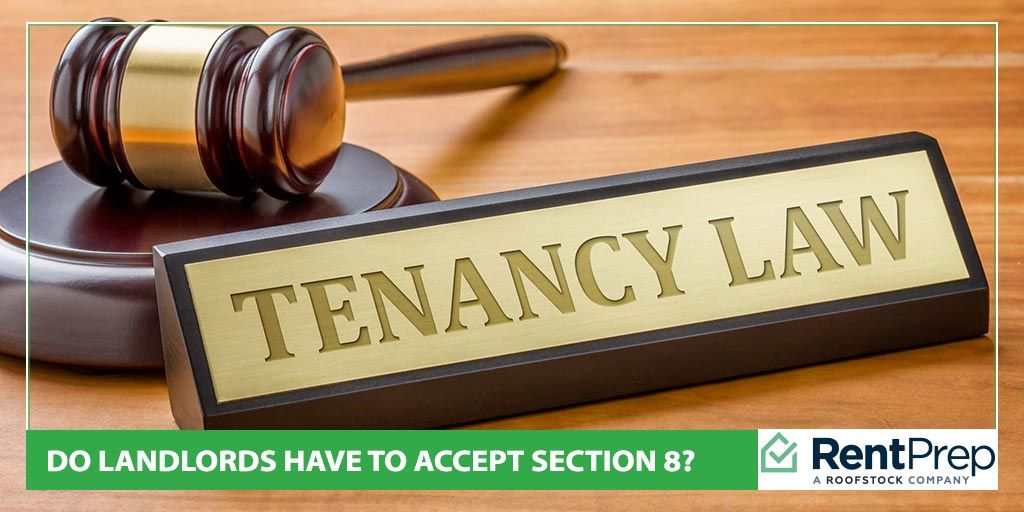
Updated July 2023
Sometimes, you’ll meet a potential tenant that you really like, but they just can’t afford the rent at your property so you have to let their application pass by. In the right situation, however, tenants that have hit hard times will have a Section 8 housing voucher they can use to rent approved properties.
When potential tenants plan to use Section 8 vouchers as a payment method, a lot of landlords will quickly look the other way and find a new tenant. The idea of receiving vouchers makes many feel like they are taking unnecessary risk on their investment.
Are landlords required to accept Section 8 tenants, or are they able to refuse them? Does refusing section 8 vouchers make sense for the common landlord, or are there benefits to accepting these government-backed housing vouchers?
Understanding how Section 8 housing vouchers could play a part in your profits or losses is an important part of becoming a more experienced landlord; here’s what we think that you need to know.
A Table Of Contents For Section 8 Landlord Benefits And Rules
- What Is Section 8?
- Are Landlords Required To Accept Section 8 Tenants?
- Is Section 8 Good For Landlords?
What Is Section 8?

Before we get into the pros and cons of accepting Section 8 tenants, let’s review what section 8 is and how it may affect your business.
The phrase “Section 8 Housing” refers to a specific part of the national housing code that helps struggling tenants pay for housing. Also known as HUD housing, this program grants vouchers to tenants that act as a guarantee that the program will pay 70% of the rent while the tenant will be responsible for the other 30%.
This is not the only way that Section 8 housing works. In some cases, the voucher is held by a specific property rather than by a specific tenant. These housing units, sometimes referred to as projects, grant voucher privileges to those living at the property. When a tenant moves out, the voucher remains with the property for the next tenant.
Enacted in the early 1970s, this program is managed by the Department of Housing and Urban Development. HUD ensures that voucher-holding tenants are treated properly by their landlords and only using the vouchers at approved and safe housing locations.
Are Landlords Required To Accept Section 8 Tenants?
Now that we’ve gotten our refresher course about Section 8 housing, let’s get into today’s main topic: Are landlords required to accept Section 8 tenants?
As is often the case in real estate, there is not a single answer to this question.
In most areas, landlords are not required to accept Section 8 tenants. However, there are some regions and states where there are some limitations about when landlords can and cannot deny an application by a Section 8 voucher holder.
Exceptions to Section 8 Housing Voucher Denial
When it comes to Section 8 housing vouchers and landlords, it’s essential to be aware of the exceptions in different regions. While state laws may not universally require Section 8 acceptance, many cities, and counties have implemented their own housing ordinances in accordance with the U.S. Department of Housing and Urban Development (HUD) guidelines.
While it’s impractical to provide an exhaustive list of all areas with exceptions, here are some notable examples worth mentioning:
- Chicago: In Chicago, discriminating against a tenant solely based on their income source, including Section 8 vouchers, is illegal. Landlords are advised against denying Section 8 applicants on these grounds.
- Washington: Recent legislation in Washington prohibits landlords from denying or rejecting applications solely because applicants utilize public assistance programs, including Section 8 vouchers.
- Texas: Unlike many other states, Texas allows landlords to reject renters who receive housing vouchers, as reported by the Texas Tribune.
In addition to the mentioned areas, there are currently 15 states with specific regulations pertaining to Section 8 housing or income-based housing discrimination.
Your Local Rules
The only way to be completely sure about whether or not you are required to accept or review Section 8 tenant applicants is to check with your local and state laws. By calling up the local housing division or even an experienced realty lawyer in the area, you’ll be able to find out if there are any ordinances that will need to be considered.
You can also find some specific information about each state’s rules on the HUD website.
The Key Point

The main thing that we would like to emphasize is that you are never required to accept a tenant just because they apply to rent your property and have a special voucher. Even when there are additional laws and protection in place to prevent housing discrimination, no law will require you to accept any tenant that you do not find to be a good fit.
The laws focus on the reasons why you decide that a tenant is fit or unfit for your property. As long as you don’t cross any boundaries in that respect, you are free to approve or deny tenants according to your will.
For more information on accepting section 8, check out this video:
Is Section 8 Good For Landlords?
Ultimately, the thing that matters most about Section 8 housing is not whether or not you are required to accept these vouchers. Instead, you should think about HUD housing from the business side of things. Will accepting these vouchers help or hurt your business? Use that information to make your choice.
The Benefits
Many landlords do not initially realize that there are a large number of good reasons to review Section 8 applicants with a positive eye. In fact, you can keep your property full and profitable if you treat Section 8 housing vouchers the right way.
These are some of the major factors of the HUD housing program that we find to be very attractive for landlords:
- Low vacancy rates because of the high demand for HUD-friendly properties
- 70% of rent paid directly by the government; no risk
- Tenants pre-approved by the PHA before receiving their voucher
- Built-in advertising within the program
The Risks
There are always going to be some risks involved when renting a property; the same remains true when renting to tenants with housing vouchers.
The biggest concern that landlords have is about whether or not they can trust tenants with limited income to pay their rent in full in a timely manner. While the government pays 70% of the rent directly each month, the other 30% will still need to be paid by the tenant.
Other landlords have an implicit bias against those that use vouchers, and they falsely believe that these tenants will be more likely to cause property damage than other tenants. The simple fact is that all tenants, regardless of where their income is sourced from, need to be thoroughly screened to help ensure that you choose a good tenant.
The biggest risk of the program, in our opinion, is that the price of your rental will be at least partially dictated by the HUD program. Section 8 sets up a specific range of prices, and these prices usually fall on the lower end of the market average. You will need to determine if low vacancy rates make up for the lower price point.
The Final Call Is Yours
Ultimately, it will be up to you to decide. Do landlords have to accept Section 8? No. A landlord is never required to accept a tenant’s application, but many areas will require you to treat a Section 8 tenant’s application with the same respect that you would treat any other application.
As there are some major benefits to renting through the section 8 program, we usually recommend that you determine whether you accept a tenant or not based on their overall application and not on where their income comes from.
If you’re interested to know more about becoming a HUD landlord, you can check out our complete guide to becoming one here.

